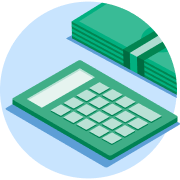First-Time Home Buyer Assistance Programs in Canada




No matter how you look at it, buying a home is expensive.
Finding out which programs you might qualify for can make buying your first house more affordable — and help you become a homeowner faster.
Assistance programs and grants exist at both the federal and provincial level, and have varying requirements for eligibility. It's important to know what's available and what you're qualified for before getting too far into the process.
Find the Best Mortgage Rates in Canada
Compare customized mortgage rates from Canada’s best lenders and brokers for free. Find and easily apply for the lowest mortgage rate for your needs.
Assistance programs in Canada
Each of the programs listed below helps in a different way. Some might reduce your tax bill, others accelerate your down payment savings plan, while others might provide a rebate or even a low-interest loan.
First-time Home Buyers’ Tax Credit
The First-time Home Buyers’ tax credit, which is also referred to as the Home Buyers’ amount, allows Canadians who qualify to claim a $10,000 non-refundable income tax credit against their new home. This means that eligible Canadians can get up to a $1,500 tax rebate.
Home Buyers’ Plan
The Home Buyers’ Plan allows Canadians to withdraw from their registered retirement savings plan, or RRSP, to help either purchase or build a home for themselves or a related person with a disability.
There are several conditions that must be met in order to qualify. Those who do can withdraw up to $60,000 from their RRSP to buy or build a new home. If you are buying a home with a partner, they can also withdraw up to $60,000, allowing you a total of $120,000.
In order to keep this RRSP withdrawal tax-free, you need to pay back the funds within a 15-year period.
GST/HST New Housing Rebate
With the GST/HST New Housing Rebate you might be eligible to get back some of the GST or the federal portion of the HST paid on a new or significantly renovated home that is used as a primary residence.
There are a number of conditions you must meet to be eligible for this rebate. But it can be another money saver for those who qualify. On top of savings at the federal level, there may be programs that reduce the provincial portion of your HST as well.
First Home Savings Account (FHSA)
An FHSA is a registered plan that allows first-time home buyers to contribute up to $8,000 per year. Savings, which can be used for a down payment, are usually tax deductible, and any interest earned or increase in value of qualified investments are tax free. You can contribute up to $40,000 to such an account.
❌ Discontinued programs
It's a bummer, but these programs are no longer available.
First-Time Home Buyer Incentive (FTHBI)
The FTHBI was a program that offered down payment assistance of up to 10% of a home's purchase price in exchange for an equity share in the home. This program was closed to new approvals after March 31, 2024.
Canada Greener Homes Loan and Greener Homes Grant
The Canada Greener Homes Loan program stopped accepting new applications on October 1, 2025. It provided up to $40,000 in interest-free loans for Canadians making their homes more energy efficient.
The Greener Homes Grant is closed to new applicants, but those already approved can file a request for a grant until December 31, 2025. The Greener Homes Grant provides up to $5,000 for eligible efficiency-related retrofits.
What is a first-time home buyer grant?
A first-time home buyer grant is a type of government incentive program that helps eligible Canadians purchase their first home. The goal is to make buying a home more affordable.
Some assistance programs may be actual grants (i.e. free money that you don’t have to repay), but others function more like loans (i.e. you have to pay the money back after a set amount of time).
Other home buying assistance options to consider
Land transfer tax rebates
If you are a first-time home buyer in a specific province or municipality, then you might be eligible for the land transfer tax rebate. Those who are eligible can qualify for a rebate of their land transfer tax up to a maximum amount, depending on where the home is located.
Eligible areas include Ontario (where you may be eligible for both a Toronto and Ontario tax rebate), British Columbia and Prince Edward Island. Montreal also offers a tax refund to homeowners with children as part of its Home Ownership Program.
Provincial first-time home buyer programs
Many provinces and municipalities also offer programs for first-time home buyers, so it’s worth your time to see if they're available in communities where you’re thinking of buying your first home. Start by searching your provincial and local governments' websites.
DIVE EVEN DEEPER

 Clay Jarvis
Clay Jarvis
 Clay Jarvis
Clay Jarvis
 Clay Jarvis
Clay Jarvis